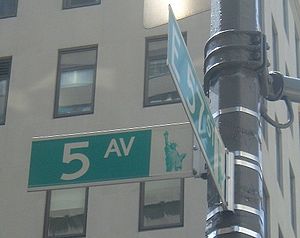New York City Marathon Cancellation Brings Ironic Good News for Some
By Al Barbarino November 7, 2012 11:49 am
reprintsThe ING New York City Marathon-that-wasn’t had something of an ironic impact on the city’s luckier retailers.
There’s no question that those hit heavily by the storm have a long road ahead, especially Downtown, where many stores closed for days and others remain closed and damaged.
Mayor Michael Bloomberg finally called the storied marathon off on Saturday, but not before many of the 47,000 registered marathon runners were already in the city for the race planned for Sunday.
 Retailers that were spared flooding, wind and other damages were able to reopen in time to greet—and cash in on—the flock of runners with nowhere to run.
Retailers that were spared flooding, wind and other damages were able to reopen in time to greet—and cash in on—the flock of runners with nowhere to run.
“Retailers that were able to open after the storm probably did better” than they would have had the marathon gone on as planned, said Cushman & Wakefield’s Joanne Podell. “Clearly the weather caused an inability for people to come open their stores. But when they were able to open up, everybody got great business.”
People ate lunch. People ate dinner. And retail stores were active and busy.
The “youthful crowd” typical of the marathon’s demographic ran to popular retail corridors along 34th Street, Madison Avenue and Fifth Avenue, Ms. Podell said.
The wave of opposition to the race, bolstered by a handful of government officials, politicians and their cohorts, celebrated the mayor’s decision, and most retailers were no different.
“These are people who live and work in the community,” Ms. Podell said. “This is not a ‘them and us’ situation.”
Estimates put the annual economic impact of the race at $340 million (as well as $35 million to charities). A significant portion of that goes to retail, entertainment and hospitality. While it’s too early to say how much of that revenue was lost due to the storm, there were surely winners to emerge from the marathon’s cancellation.
“Although the marathon was canceled, there are still a significant number of participants staying to enjoy the city, which means shopping and spending money,” said Adelaide Polsinelli, a senior director at Eastern Consolidated. “This will certainly lead to more dollars being spent, as the victors are not hampered by stringent schedules and the down time spent on physical recovery.”
“Tourists who are here this week will see a side of New Yorkers that is only evident during a major crisis,” she added. “This experience will speak volumes for our city’s courageous spirit and the willingness of visitors to be here and support us.”



